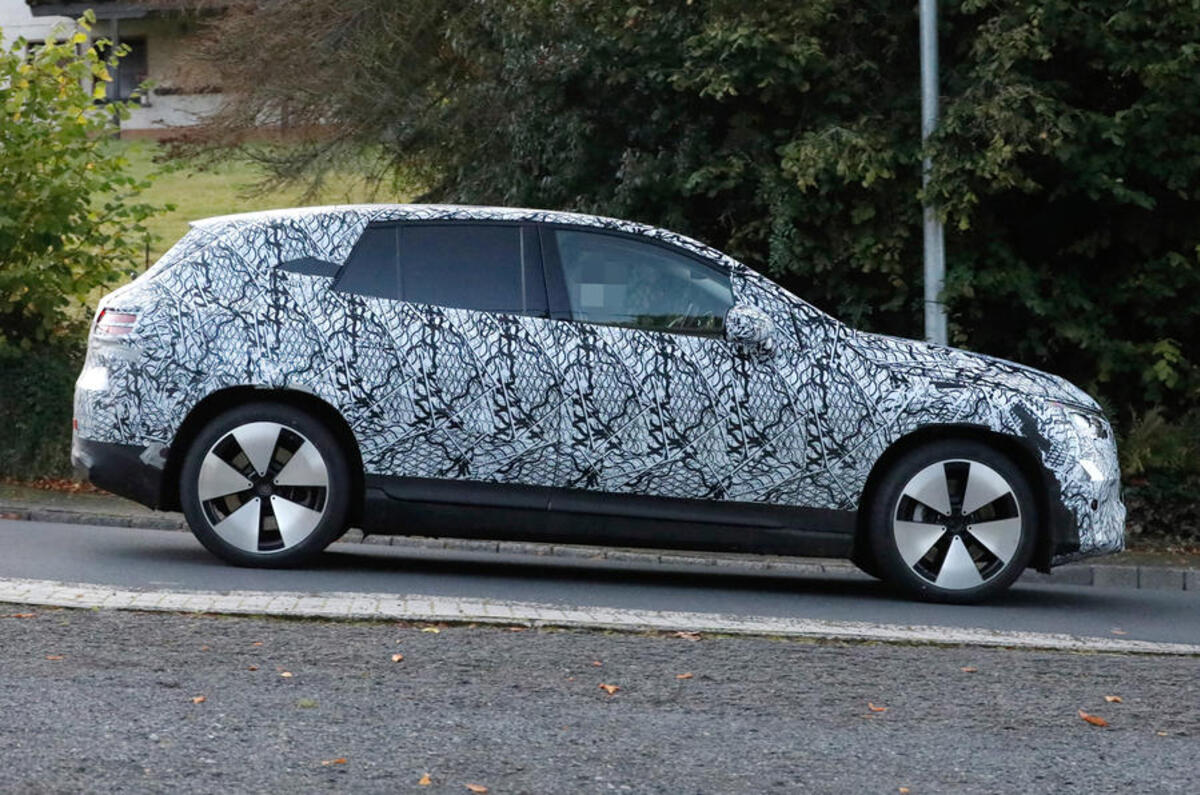Mercedes-Benz will reinvent the concept of the traditional SUV as it pursues enhanced efficiency for its next-generation electric cars.
At the reveal of the ultra-efficient EQXX concept, company bosses hinted at plans to introduce more aerodynamically efficient designs for its models in the crucial and ever-popular SUV segment, in an effort to provide customers with greater range per charge.
Asked if the quest for greater efficiency could see a shift away from SUVs altogether, in favour of lower cars like the EQXX, chief technology officer Markus Schäfer told Autocar: "The matter of fact is that the biggest factor in achieving efficiency is aerodynamics times the factor of the size of the vehicle.
"Definitely we will see different shapes of SUVs. I truly believe the shape of SUVs will change, at least if efficiency matters to a car company, and it does to us.
"It has to drop a little bit to the rear of the car, and the width of the front and rear axles might not be the same. There are some slight optimisations that can be done to a vehicle to dramatically change the efficiency and consumption.
"But ultimately we have to take the customer into consideration, and the customer loves SUVs, no doubt. They love SUVs and the market share is still rising, but the shape probably will change."
His comments come as Mercedes readies a new family of bespoke electric SUVs using the new MEA (or EVA2) architecture, including the EQE SUV and larger EQS SUV.
Schäfer's views were echoed by chief designer Gordon Wagener, who said "SUVs will never be as efficient as these lower cars," citing that inevitable truth as a reason for the EQXX concept's "low, 'sedan-ish'" silhouette.
SUVs' traditionally larger frontal areas and flat, hatchback-style rear ends are not conducive to optimised efficiency, Wagener explained.
"We will show you very efficienct SUVs when we launch new SUVs on the new EVA2 platform," he promised. "They will be so much more efficient than any SUV before: a bit more 'flowy', less boxy." Certainly, spy shots and official previews suggest the EQE and EQS SUVs have been designed with a keen focus on aerodynamic efficiency.
But, Wagener suggested, there are limits to the range-boosting effects of improved aero. "The Mercedes-Benz EQS sedan will always be more efficient than the EQS SUV," he explained. "That's physics - you can't change that."








Join the debate
Add your comment
So basically they are saying electric SUVs need to look like the first electric SUV the Tesla Model X
At least until tanks stop being fashionable with the well heeled customers. I can imagine they will become pissed with their social housing neighbours also driving a tank. They'll want something else to stand out, to signal their status.
Only someone in the UK could believe that's how business works.
"None so blind as they that won't see." Jonathon swift.
At least Schafer admits that sleeker SUVs are good for reducing frontal area and increasing efficiency. But why not go further and design narrower and lighter models too. Wide cars may be good for Nurburgring lap times and side impact safety but do we really need 1g cornering ability in today's traffic - and couldn't similar safety be achieved by placing car occupants closer together? And what about the idea of limiting top speeds (as most EV manufacturers already do admittedly): sustained high speed is probably the single biggest factor limiting EV range, so perhaps persuading drivers to cruise at slower speed is important too.
I wonder too, if he also means that more coupe like 4 door SUV/CUVs are on tap due their more aerodynamic rear end?!